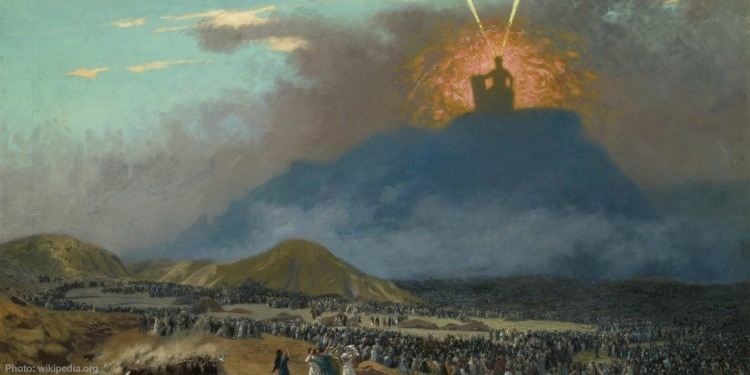Journey to Sinai
The Fellowship | June 11, 2019

On the first day of the third month after the Israelites left Egypt—on that very day—they came to the Desert of Sinai. After they set out from Rephidim, they entered the Desert of Sinai, and Israel camped there in the desert in front of the mountain. — Exodus 19:1–2
Beginning at sundown on June 8 through sundown June 10, Jews around the world will celebrate the biblically mandated festival, Shavuot, which Christians will know by its Greek name, Pentecost. Originally tied to the harvest season and the bringing of the firstfruits to the Temple, the holiday now commemorates the giving of the Torah and the Law exactly 50 days after the Exodus. Enjoy these timeless teachings from Rabbi Yechiel Eckstein on the many lessons this ancient observance has for Christians today.
Test your knowledge on Shavuot with our newest quiz!
The holiday Shavuot celebrates God giving the Torah to Moses on Mount Sinai 50 days after the children of Israel left Egypt. Our verses from Exodus give us an approximate itinerary that the Israelites followed during those 50 days. However, upon closer examination, these verses seem so repetitive and out of order that the Jewish sages conclude there is a deeper meaning to this information.
This isn’t just the physical route that the children of Israel followed; it’s also the details of the spiritual journey that prepared them for Sinai.
The verse begins, “On the first day of the third month after the Israelites left Egypt—on that very day—they came to the Desert of Sinai.” This describes the overall route and timeline that the Israelites followed. Then we read, “After they set out from Rephidim, they entered the Desert of Sinai, and Israel camped there in the desert in front of the mountain.”
We already were told that the Israelites arrived at Sinai, so why double back and tell us that they left a place called Rephidim to get there? Also, why does Scripture say that they entered the desert and then repeat this information by saying that they camped in the desert? In the Jewish tradition, every word in the Torah has meaning and a teaching, which is why the sages believe that this second verse is about the spiritual path to Sinai.
According to Jewish teachings, there are three stops, or three prerequisites to fulfill, on the way to Sinai — leaving Rephidim, entering the desert, and encamping in the desert. These stops correspond with these three attributes: strength, humility, and unity, which are the three requirements for acquiring God’s Word so that it is life-changing and lasting.
The root of the word Rephidim means “weakness.” The first step of the journey requires us to leave weakness behind, as the Israelites left Rephidim. To hold on to God’s Word, we must be strong and steadfast, committed and determined. Next, the Israelites entered the desert, a place so vast and dangerous that it is truly humbling. In the desert, it is obvious that God is King, and we are completely dependent on Him for our survival.
Finally, Scripture teaches that the Israelites camped in the desert. In the original Hebrew, however, the word “encamped” is written in the singular form instead of plural, meaning all the Israelites had the singular goal of bringing God’s Word into their hearts. We, too, must bond with other believers and act as one in bringing God’s Word into our hearts and into our world.
Where are we today in our spiritual journey? Have we left Rephidim yet? Are we strong and committed to following God’s Word for us? Do we need to spend more time in the desert to become more dependent on Him? Have we bonded with other believers, or do we think we can go it alone?
Consider where you are right now and what steps you may need to take next on your faith journey.
Find out how much you know about Shavuot¸ and take our quiz today.
